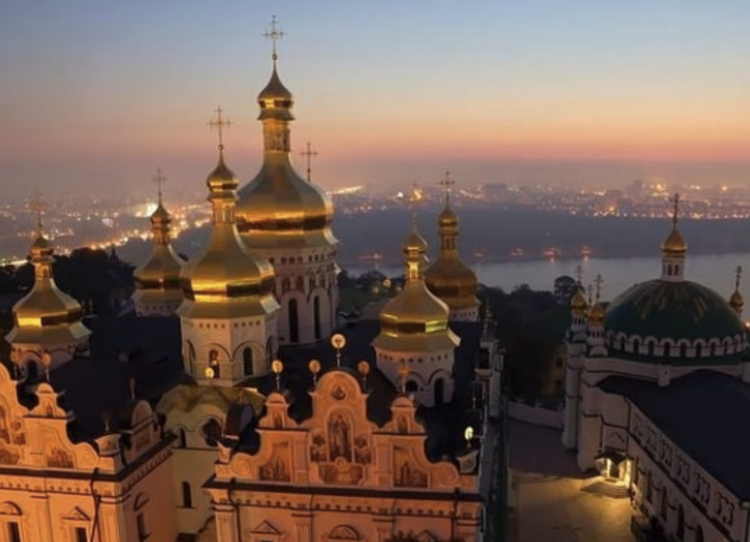After the Soviet Union's collapse, Orthodox Christians throughout the Slavic world celebrated the slow, steady, construction of churches after decades of persecution.
In 2004, the poet Nina Borodai wrote a long prayer -- "Song of the Most Holy Theotokos (Greek for God-bearer)" -- seeking the prayers of St. Mary for the lands of "Holy Rus," a term with roots dating to the 988 conversion Prince Vladimir of Kiev.
"Mother of God, Mother of God / … All Holy Rus prays to you / And valleys and mountains and forests. … / Consecrate all the churches to you," wrote Borodai (computer translation from Russian). "Domes, domes in the sky are blue / I can't count the bells / The ringing floats, floats over Russia / Mother Rus is awakening."
Borodai's prayer of joy and repentance was an unlikely spark for an explosion of religious conflict inside Ukraine. Leaders of the Ukrainian Orthodox Church -- with centuries of canonical ties to Russian Orthodoxy -- face Security Service of Ukraine accusations of collusion with President Vladimir Putin of Russia. Some churches have been seized or padlocked as pressures rise for conversions to the rival Orthodox Church of Ukraine, officially born in 2019 with recognition by Ecumenical Patriarch Bartholomew I of Istanbul and Western governments.
In November, an OCU priest posted a video showing laypeople singing Borodai's poem after a service inside the Kiev Pechersk Lavra, the font of Slavic monasticism since its birth in 1051 in caves above the Dnieper River. Monastery critics made headlines by claiming the video proved the monks -- part of the historic UOC -- are disloyal to Ukraine. Lavra visitors, according to the New York Times, were "cheering for Russia."
Days later, security forces raided the monastery and, in the weeks since, officials have accused bishops and priests of aiding Russia. They released photos of Russian passports, theological texts in Russian and pamphlets criticizing the newly created Ukrainian church.
The UOC synod responded by pleading for fair, open trials of anyone accused, while noting: "From the first day of the invasion of Russian troops, the Ukrainian Orthodox Church has condemned this war and has consistently advocated the preservation of the sovereignty, independence and territorial integrity of Ukraine. Our believers, with God's help and the prayers of their fellow believers, courageously defend their Motherland in the ranks of the Armed Forces of Ukraine. … Memory eternal to all victims of this terrible war!"
This echoed waves of UOC statements condemning the invasion.





